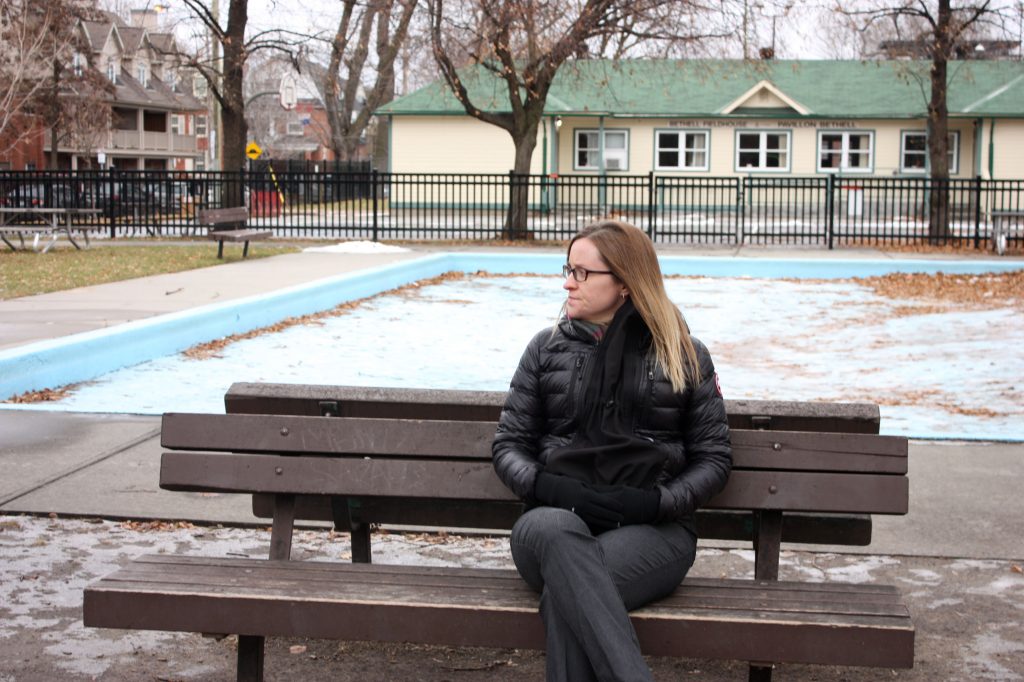Halfway house raises ire
By Kiera Kowalski
A halfway house for former prison inmates, set to open in Centretown within weeks, has sparked controversy among area residents.
Centretown Families, a group of about a dozen residents of McLeod Street, is pressing the city to prevent the community-based residential facility from opening because of concerns about a high concentration of halfway homes in the downtown area, said board member Rebecca Kulik.
“When you look at Centretown as a whole, this will be our fourth halfway home,” said Kulik, who claimed there are only five halfway houses located in all of Toronto.
“The number of houses is not really representative of the population,” she added.
Kulik said Centretown Families “believes as a whole that these facilities are good for communities,” but not if they are all located in one area of the city.
But Tracy Cortes, director of an existing House of Hope halfway facility on Gilmour Street and the applicant for the second location planned for McLeod Street said the central Ottawa area has proven to be successful for her clients over the years.
For that reason, she explained, House of Hope has selected a McLeod Street address less than a kilometre away from the original facility on Gilmour.
The halfway house controversy comes on the heels of two other wrenching, high-profile issues in Ottawa that saw communities upset with the way social missions — however vital to their clientele — were implemented despite strong neighbourhood objections.
In Lowertown, many residents were outraged when a pop-up safe injection site was set up in a neighbourhood park as a stop-gap measure to address alarming rates of opioid overdoses among drug users. And earlier this month, many residents and business owners in Vanier made an unsuccessful effort to convince city council not to approve the Salvation Army’s plan to build a large shelter for homeless men along the community’s main Montreal Road retail strip.
The existing House of Hope location on Gilmour Street has 19 beds and the planned facility would have 10 additional beds. Elsewhere in Ottawa, the Kirkpatrick house on MacLaren Street has 19, the Masion Decision House in Little Italy has 12, and the St. Anne Residence in Vanier has 12, as well.
House of Hope offers programs and services for criminal offenders on parole to help reintegrate them into society. They also house statutory offenders — men who have served two-thirds of their sentence in prison and have been released to serve their remaining time under supervision in a halfway home.
Cortes stressed that the reason for House of Hope’s high success rate is because it’s close to key community resources. The House of Hope is very close to the YMCA on Argyle Avenue, the Ottawa Public Library and the parole office.
“The McLeod Street location was chosen because of its proximity to community-based resources in the downtown area that our clients use,” said Cortes.
“We have been in the Golden Triangle for 43 years and have a lot of evidence to suggest that that location is quite effective for our clients and their successful reintegration into society.”
Regardless, Kulik said she would still like to see halfway houses spread throughout the city, rather than concentrated in downtown Ottawa.
She suggested Westboro or the Glebe as alternative locations.
“I think there are other communities that could house a few,” she said. “Even look at expanding to the suburbs.”
She said she’s concerned about her neighbourhood becoming dangerous.
“They say these people aren’t dangerous and they’re on they’re best behavior,” said Kulik, referring to the halfway house residents. “I don’t buy it.”
Cortes countered that “there’s no evidence that suggests (halfway facilities) have increased the risk profile of Centretown.”
Some citizens in the area do support the halfway house. Cathy Ann Fagan noted in an open letter that living in close proximity to the home does not bother her. In fact, she said has had good experiences with the men living at the House of Hope, noting they have helped shovel her car out of a snow bank and helped find her lost cat.
She wrote that she supports the House of Hope facility, and that over the years has seen many residents benefit from living in the home.
Centretown Families has contacted the office of Ottawa Mayor Jim Watson, Somerset Coun. Catherine McKenney, the Centretown Citizens Community Association and the Correctional Service of Canada to express concern about this issue, but so far Kulik said residents are in a waiting game.
Catherine McKenney did not provide a comment on the issue at this time.
“Right now it’s a constant follow-up with the city to see what they are going to do,” said Kulik.
“We’re just not getting anywhere.”

